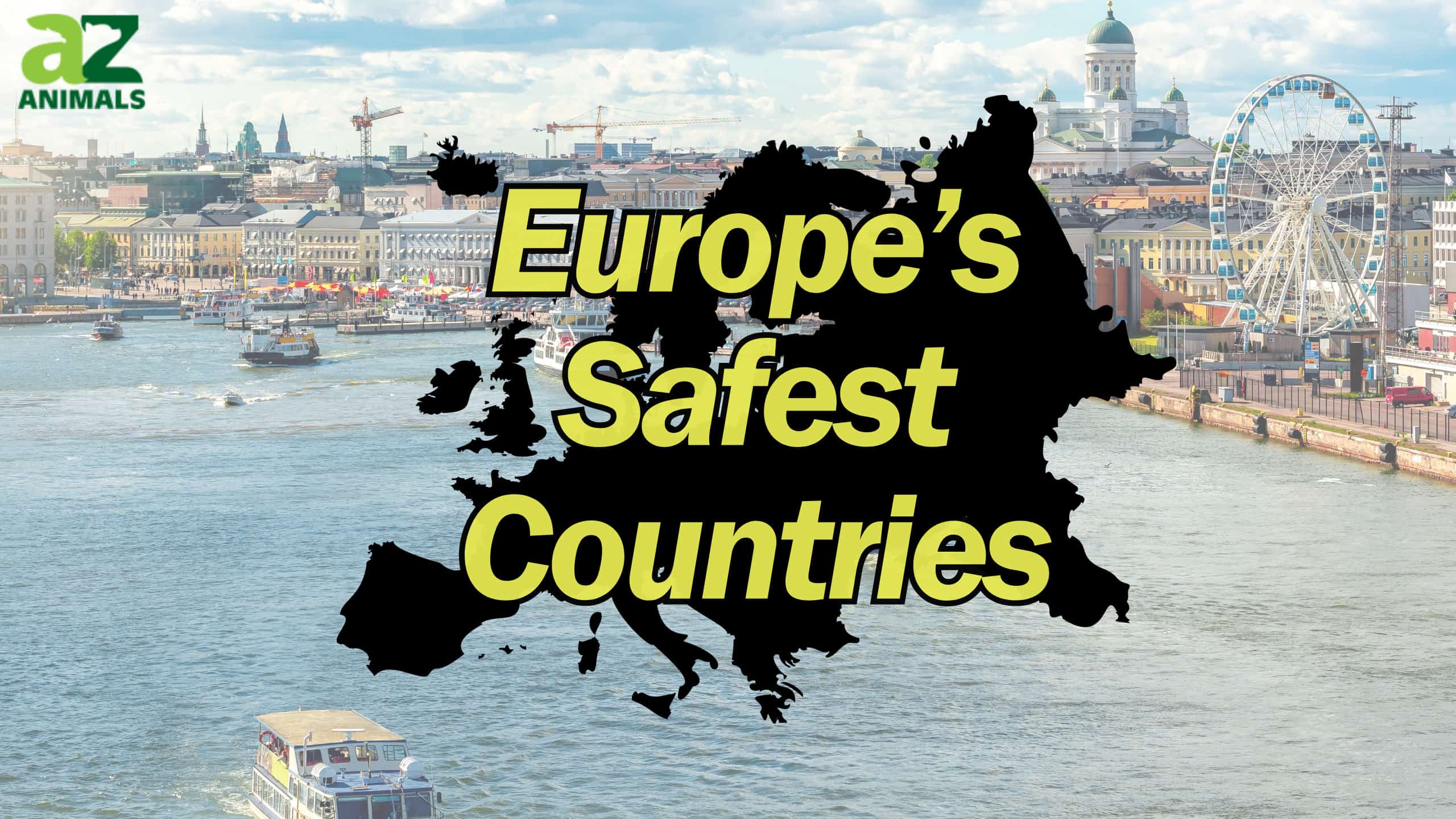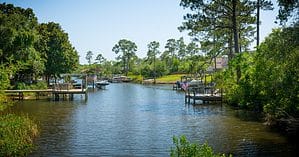For many, Europe is a bucket list destination. Although each country is a short distance from another, it feels as though you’re transported worlds away with just a short flight! When deciding where to go, you might have questions about the relative safety among European countries. Let’s explore six of the safest countries in Europe and explore what structures help uphold these communities!
1. Iceland
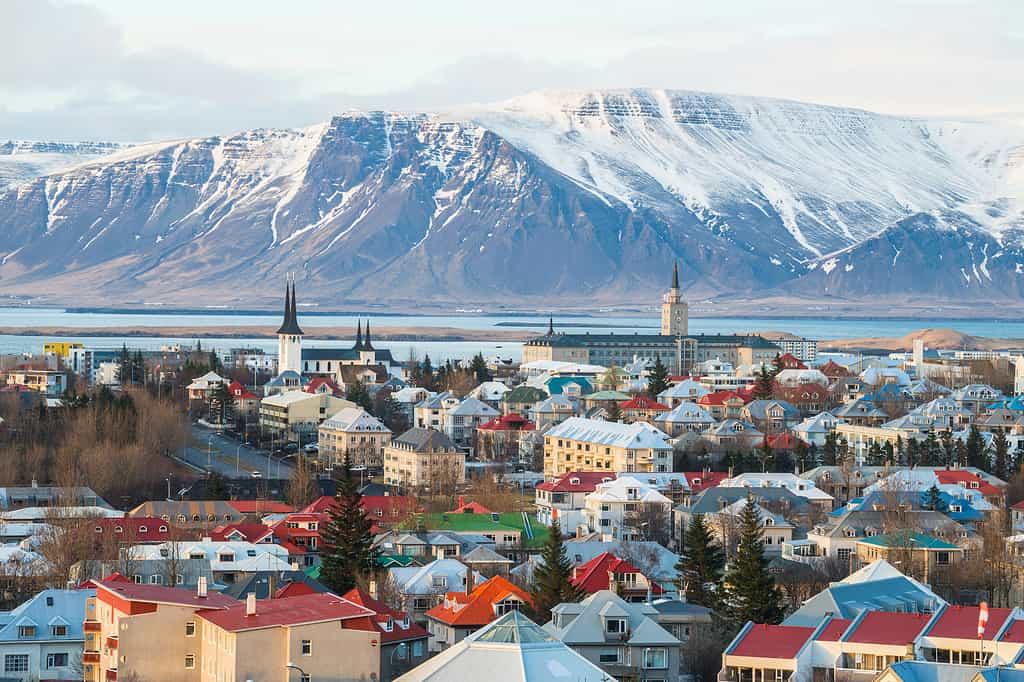
The Blue Lagoon and the Northern Lights are two popular tourist attractions in Iceland.
©Boyloso/ via Getty Images
According to The European Travel Information and Authorisation System, “Iceland is considered the safest country in the world. It ranks high on the global peace index with a score of 95. It has been voted the most peaceful nation for 12 years in a row.” The crime rate in Iceland is 22.6%, and compared to other countries, this is a very low score. Many factors contribute to the low crime rate, such as low unemployment and high education levels. Beyond being safe, Iceland has many wonderful features. Natural beauty, endless entertainment, and delicious food are all waiting for you in this country.
2. Switzerland
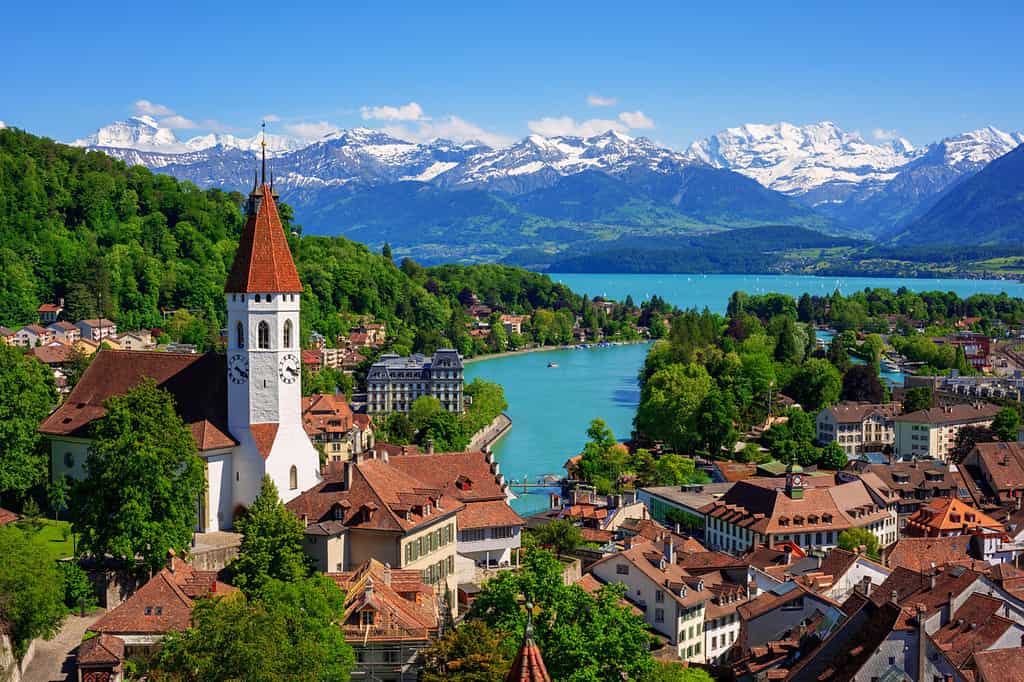
The Alps make up roughly 60% of Switzerland.
©Boris Stroujko/Shutterstock.com
When you picture Switzerland, a few things might come to mind. Skiing through the Alps, historic charm, and jaw-dropping natural landscapes are some of the most popular associations with this country. In addition to being one of the most beautiful countries in the world, it is also one of the safest. The Swiss people have a collective mentality: everyone tries to contribute to the greater good. Social and economic infrastructure is strong, and people generally have respect for one another. Violent crime is very rare here, but petty theft and pickpocketing do still occur. While visiting popular tourist attractions, be aware of your surroundings and keep all your personal items close to you.
3. Ireland
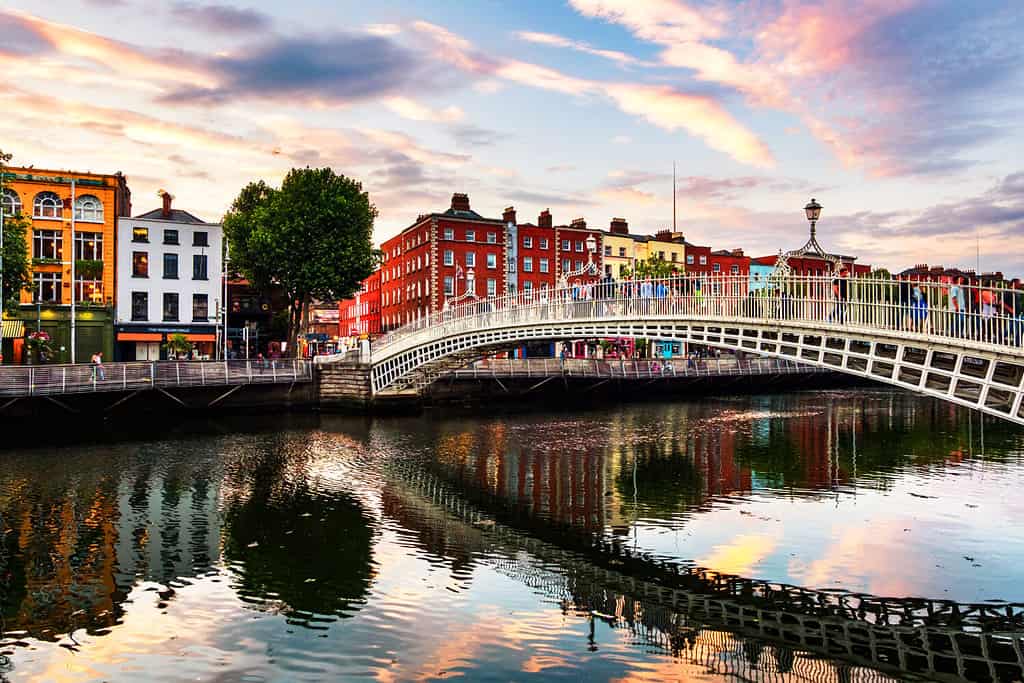
Roughly five million people live in Ireland today.
©Madrugada Verde/Shutterstock.com
Another famously safe country is Ireland. In fact, the Global Peace Index ranked Ireland as the third most peaceful country in the world. Some of the factors that contribute to the safety here are low political tension, low unemployment, and access to housing. Many people in Ireland make enough money to exceed their needs, and very few work long hours. In addition, Ireland has strong, positive relationships with the countries that it borders. As with any country, there are certain places visitors should refrain from traveling. But generally speaking, Ireland is very safe, and most visitors feel comfortable even while traveling alone.
4. Finland
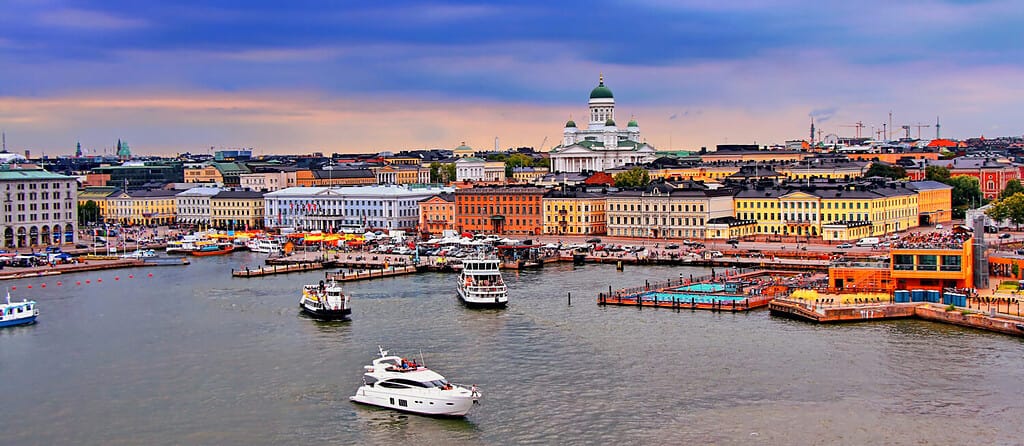
Some people call Finland the “happiest country in the world.”
©elina/Shutterstock.com
Anyone who has traveled to Finland will tell you that the locals are some of the friendliest, happiest people in the world. But why is this? For starters, corruption is very low. People trust the police, believe that the government is ethical, and enjoy high personal freedoms. In addition, Finland understands the importance of quality education and strives to make it accessible for everyone. Finnish people have a collectivistic attitude, and helping your neighbor is commonplace. All of these factors combine to create a paradise on Earth of sorts. Most people report that they’re generally satisfied with life and feel that they’re being treated fairly. Because of this, there isn’t a great incentive to commit violent crimes.
5. Austria
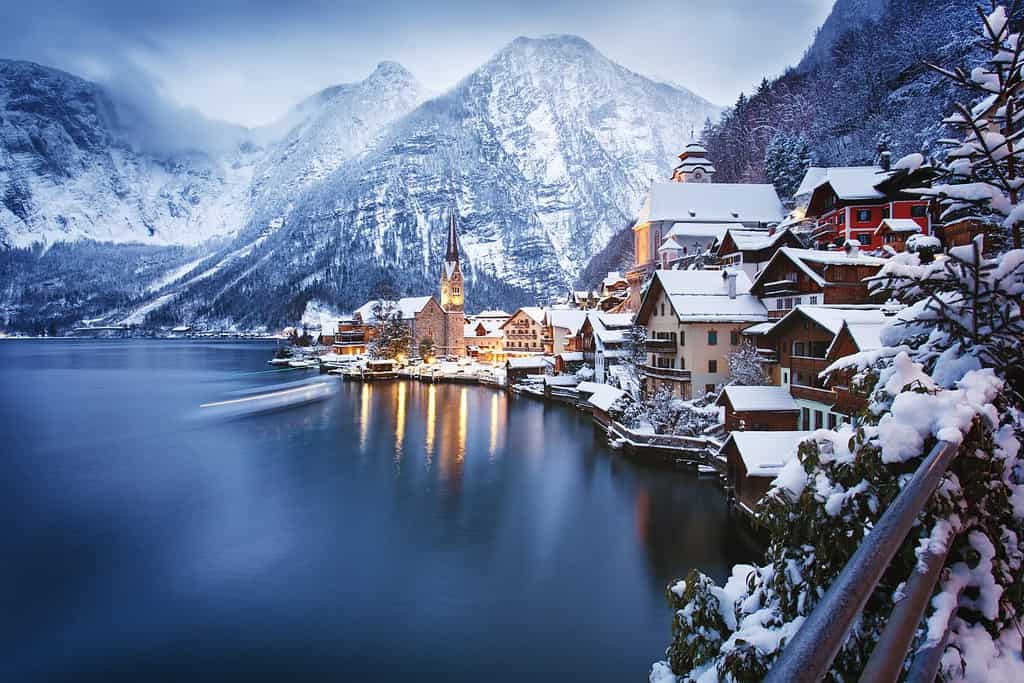
Roughly 25% of the entire Austrian population lives in Vienna.
©Dzerkach Viktar/Shutterstock.com
The reasons why Austria is considered safe are similar to other entries on this list. A stable political environment, general respect for one another, strong economic structure, and good access to education are all qualities we see reflected here. Both expatriates and natives report that urban areas are clean, and many people feel perfectly at ease when traveling alone. In addition, Austrians are very friendly and welcoming. In the event you need help or become lost, it’s in their nature to lend a hand. As we stated earlier, there is a chance for petty theft in Austria, so be aware of your belongings while traveling. Aside from this, travelers have little to worry about when visiting.
6. Portugal
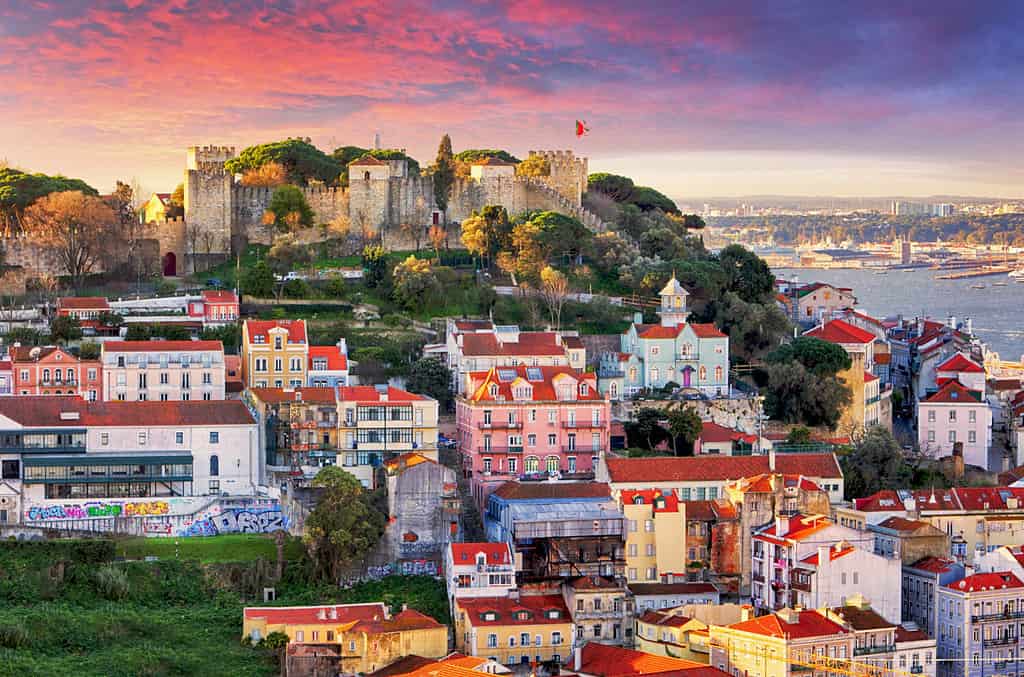
The oldest bookstore in the world is located in Portugal.
©TTstudio/Shutterstock.com
Portugal is well known for many things: breathtaking natural landscapes, delicious food, happy people, and of course, safety. However, things weren’t always this way. At one point, Portugal actually struggled with safety among citizens as a drug epidemic ravaged the country in the late 1990s. Political officials recognized the severity of this situation and devoted large sums of money to harm reduction programs, improved healthcare, and community outreach. Since then, the country has made a remarkable transformation. In 2023, Portugal ranked 7th on the 2023 Global Peace Index. Factors like an extremely low violent crime rate, affordable cost of living, community-driven attitude, and high educational achievement among citizens all influenced their ranking.
| Country | Why It’s Safe |
|---|---|
| Iceland | Low unemployment, high-quality healthcare, and high educational achievement |
| Switzerland | Collectivistic attitude, strong social and economic infrastructure |
| Ireland | Low political tension, low unemployment rates, and adequate access to housing |
| Finland | Citizens trust the government and police, and they have a collectivistic attitude |
| Austria | Stable political environment, collectivistic attitude, strong economic structure, and good access to education |
| Portugal | Affordable cost of living, community-driven attitude, and high educational achievement |
Thank you for reading! Have some feedback for us? Contact the AZ Animals editorial team.

